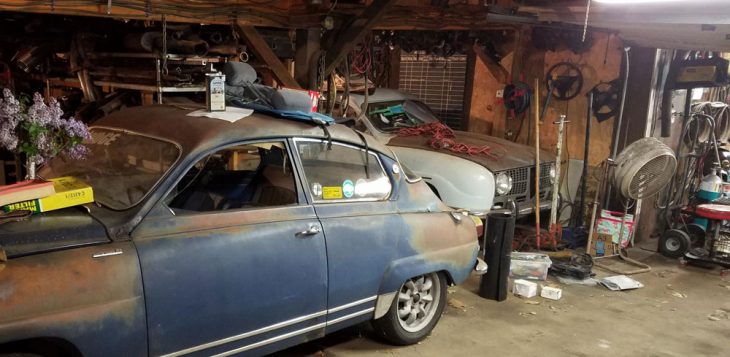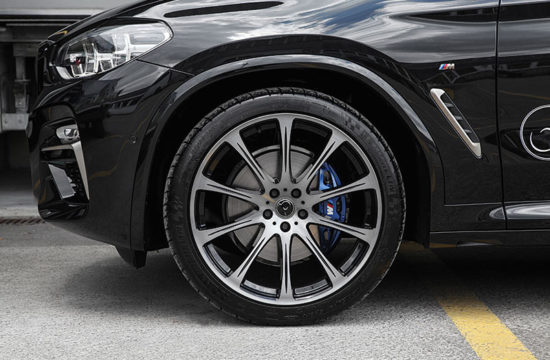During the last century, asbestos was used for the manufacturing of numerous automotive components such as brakes, clutches and gaskets, as the mineral has excellent resistance to high temperatures. Thereby, it was perfect for insulating these components. However, asbestos is a known human carcinogen and exposure to it can lead to the development of terrible diseases within 20 to 50 years, such as lung cancer and mesothelioma.
The Use of Asbestos in the Automotive Industry
Between 1920 and 1980, asbestos, a naturally occurring mineral, was used extensively in the automotive industry for the manufacturing of a wide range of components, such as brakes, clutches and gaskets. Since it has great fire resistance, it was perfect for insulating automotive components. However, asbestos is a dangerous mineral, as it is deemed a human carcinogen by multiple national and international health agencies. Exposure occurs when one inhales or ingests asbestos fibers that were previously released in the air by various work activities and can subsequently lead to the development of serious diseases such as lung cancer or mesothelioma. Consequently, mechanics would often encounter asbestos on the job when installing, maintaining or repairing certain automotive components. It is estimated that over 900,000 mechanics were exposed to asbestos in the workplace during the last century.
While asbestos is no longer employed by the automotive industry, old vehicles may still have components that contain it. Thereby, mechanics that have to work on old automotive components without wearing adequate protective equipment will inevitably be exposed to asbestos. By disturbing automotive components manufactured with the toxic mineral, asbestos fibers will be released in the air, making exposure unavoidable. On the bright side, there are effective and safe alternatives to asbestos that can be used by the automotive industry as insulation for components.
Safe and Effective Asbestos Substitutes
Since 1970, more and more health agencies have been raising awareness of the dangers of asbestos exposure in the workplace, which led to the mineral being properly regulated in occupational settings a decade later. Today, asbestos is no longer present in the automotive industry in the United States, as the industry has found viable alternatives to the hazardous mineral. Here are some of the safest and most effective asbestos substitutes employed by the automotive industry nowadays:
- Thermoset plastic: This asbestos substitute is created by heating a liquid or powder and molding it into any shape you desire. Some of these types of plastic include epoxies, polyesters and silicones. Once they are molded into the shape you want, they maintain their shape forever. In addition to the automotive industry, thermoset plastic is also used as electrical insulation, as it also has great electricity resistance.
- Fiberglass: With extraordinary abrasion resistance, fiberglass can successfully be used for the manufacturing of brake pads and clutches. The material is heat resistant and, although it is not as strong as asbestos, it is safe and non-toxic. In vehicles, you can also find fiberglass in the front and rear bumpers, hoods, doors and casings.
- Amorphous silica fibers: It can be used as insulation for automotive components, as it has the ability to withstand extreme temperatures. The fibers of amorphous silica do not easily burn or rot, which makes it a great alternative to asbestos.
- Polyurethane foams: This material, which is water-based, comes in the form of a spray that is highly resistant to heat. Oftentimes, polyurethane foams are mixed with plastic and rubber to increase the strength of the final product. Similarly to polystyrene, the bubbles inside the foam enhance the ability of this material to withstand extreme temperatures, making it ideal for basement insulation.
- Thermoset plastic flours: As a great asbestos substitute, thermoset plastic flours are made of liquid and powder, particularly wood flour, which can be molded into the shape you need. Because they are very versatile, they can also be employed by the automotive industry for the manufacturing of a wide range of components. It is worthy of note that thermoset plastic flours also have great strength.
- Cellulose fibers: One of the most eco-friendly alternatives to asbestos are cellulose fibers, which are made from shredded newsprint treated with chemicals to increase fire resistance and durability. The recycled content of cellulose fibers ranges between 5% and 15%, which prevents this material from causing damage to the environment.
Should I Remove Old Asbestos Components from My Car?
If you own a car which was manufactured before 1980, you may wonder whether you should replace the asbestos components on it. However, as long as they are in good condition and are not disturbed, automotive components manufactured with asbestos do not pose a serious health threat. Nevertheless, if you need to replace one or multiple automotive components with asbestos, it is important to tell the mechanic that these products contain the dangerous mineral so that they can wear adequate protective equipment when working on your car.
About the contributor author
Gregory Cade is the principal attorney of Environmental Litigation Group, P.C. The law firm, located in Birmingham, Alabama, specializes in toxic exposure cases and their legal team has over 25 years of experience in pursuing compensation for people injured by asbestos exposure. The attorney also has a Master of Public Health degree in Occupational Health, Safety and Industrial Hygiene.









